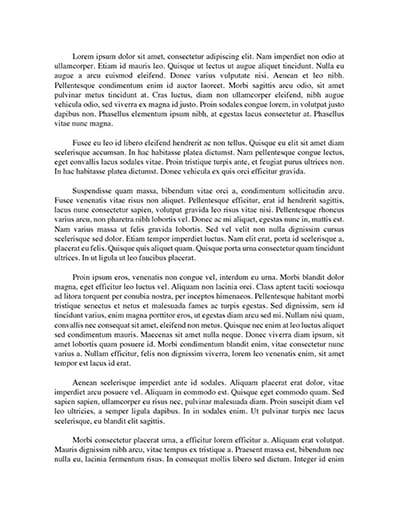A history essay is an academic paper regarding some history issue. The definition of history essay doesn’t indicate the type or form of the essay, but rather its thematic direction. You should take into account that history essay is an academic writing that requires a neutral scientific tone. To keep a line with these terms, stay scrupulous in the choosing of the sources for your work and double-check the citations.
How to write a history essay
1) Foremost, you need to carefully evaluate your topic. There are four basic types of history essays. In the first case, the topic already contains a question. For example, “How the Prohibition Affected the U.S. Economy in the Late 20s?” In the second case, it suggests you a research object. Something like “Eating Habits of English Aristocrats in the Second Half of the 17th Century”. The third option is a comparative essay topic, which requires comparison of the two historical phenomena. Example: “Compare the civilizations in Mesopotamia and Egypt with the Indus Valley civilization”. Thematic essay of the fourth type questions the consequences or the causes of some event: “Indicate the effects of the Whiskey Rebellion (1794)” For the first topic type, your essay will have an expository form. For the second, you write the informative essay. The best essay type to unfold the third topic is a compare-and-contrast essay. For the fourth – cause-and-effect essay format.
2) Before you start going deep into your subject, clarify the definitions of the topic key terms. The most common mistake students make is writing off the topic, so make sure you understand the question correctly.
3) Divide the general question into the sub-questions. Consider them precisely; define the sources for the each of them.
How to structure your essay
When figuring out the standpoints of your topic, you can proceed to the outline drawing. Notice that the precise structure of the history essay depends on the type of an essay you need to write (expository, informative, comparative, or cause-and-effect essay).
In general, your essay will have a three-part structure:
- In the introduction indicate relevance and explain the context of the question you will discuss.
- In the body outline the main argumentative positions towards the issue. Point out their strong and weak aspects.
- In the conclusion, sum up the arguments and voices; define your position regarding the sources you’ve considered.
How to develop a topic of a history essay
Since the trickiest part of the history essay preparation is a correct estimation of the topic question, let’s take a look at the steps of the topic analysis you need follow. For example, you have a topic “Cuisine and eating habits of English aristocrats in the second half of the 17th century”. Your algorithm is following:
- Clarify all the notions in your topic. Eating habits and cuisine – what it includes?
a) Habits:
- How many times they usually ate per a day?
- How did they lay the table?
- How did they use cutlery?
- How did they preserve food?
- How did they transport short-lived commodities?
- Did they have dinner parties? How did they look like?
b) Cuisine:
- What were the most popular foodstuffs?
- What was the traditional cuisine (did they like spices, what was the central meal on the table, what was the ratio of vegetables and meat on the table?)
- Which cook techniques did they prefer (boiling, frying-up, baking)?
- Define the main subject of consideration.
As you topic suggests, you focus on the food habits of the aristocrats, Besides, it is easier to find the proper sources.
- Explain the historical context of the described events.
What was the situation in England in the second half of the 17th century (in the aspects of the economy, foreign policy, and development of trade routes)?
- What are your main sources?
You can appeal to the two most famous diaries of the time that belong to John Evelyn (1640-1706) and Samuel Pepys (1660-1669). Along with historical events, these scripts describe daily routine, including food habits and even recipes (Pepys).
This is kind of topic corresponds with the key concepts 4.1 and 4.2 of the AP world history questions (the aspect of the development of trade relationships with state-neighbors and development of food industry within a country).
Got the idea?
If your focus is on the American history, there are some prompts for the US history essay topics:
- What were the factors of the American Revolution victory?
- What impact had slavery on the South States economy? How were African American families affected?
- Apart from the questions of slavery, what were the key issues of the conflict of North and South?
- How the building of the transcontinental railroad influenced on the developing of the West states?
- What were the peculiarities of the late 1800s immigration wave: what primer difficulties the immigrants encountered, and how did they accustom to life in America?
- What were the causes of the severe damage of The Great Chicago Fire (1871)? How it affected the architecture if the city?
- What was the impact of the child labor at the edge of the 19th-20th century? Analyze the reforms regarding this issue.
- Discuss the causes of the Spanish-American War.
- What were the reasons for U.S. to involve to the World War I?
- What were the causes of the economy collapse resulted in the Stock market crash (1929)? Was it possible to avoid it?
- Would the U.S. have involved the WWII, if the was no Pearl Harbor?
- How the anti-war movement influenced on the American society opinions on the Vietnam War?
The success of your essay is measured by how well you are prepared. The key element here is to read the examples of the well-written history essays. So don’t forget to look up for the examples in the StudentShare database!

